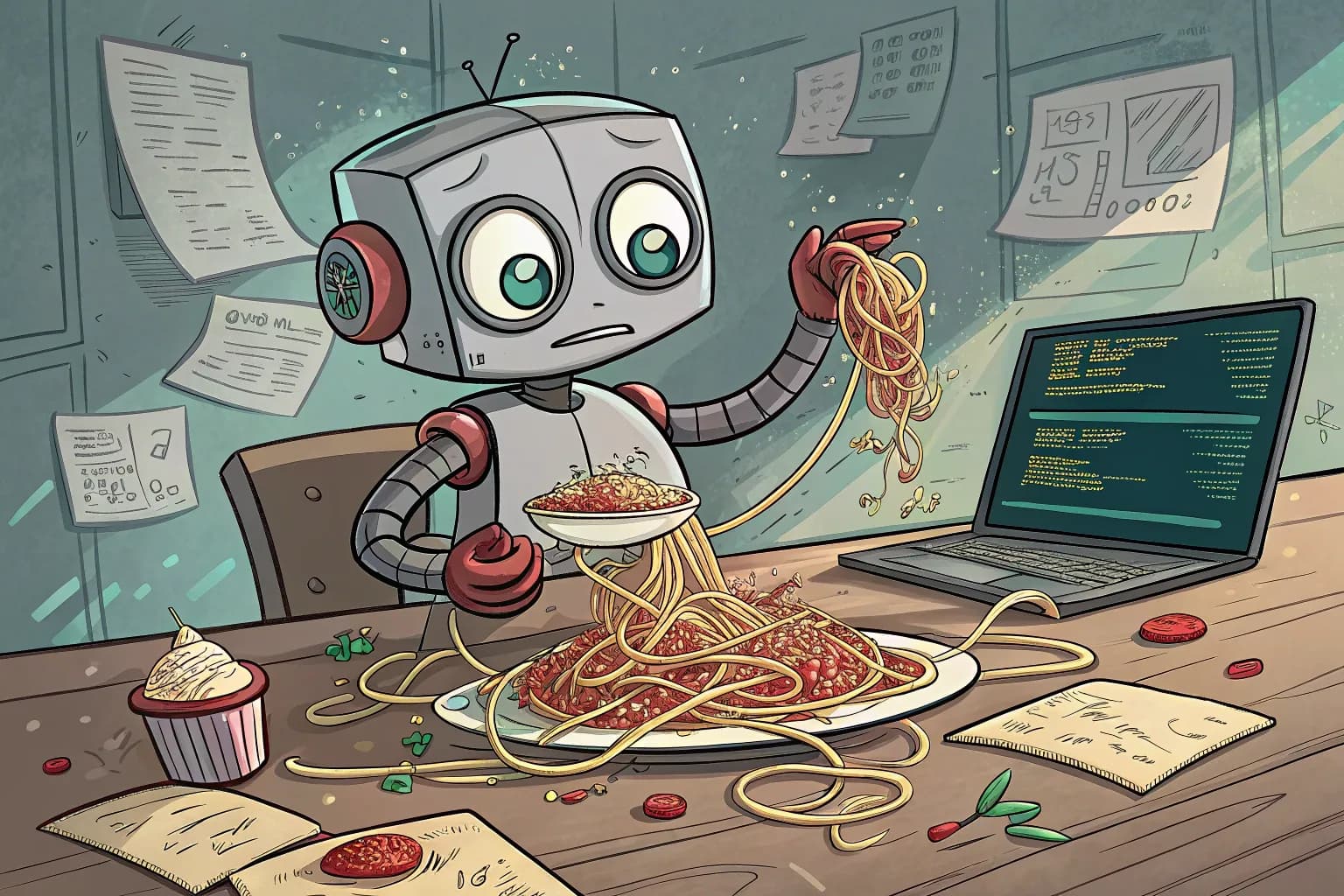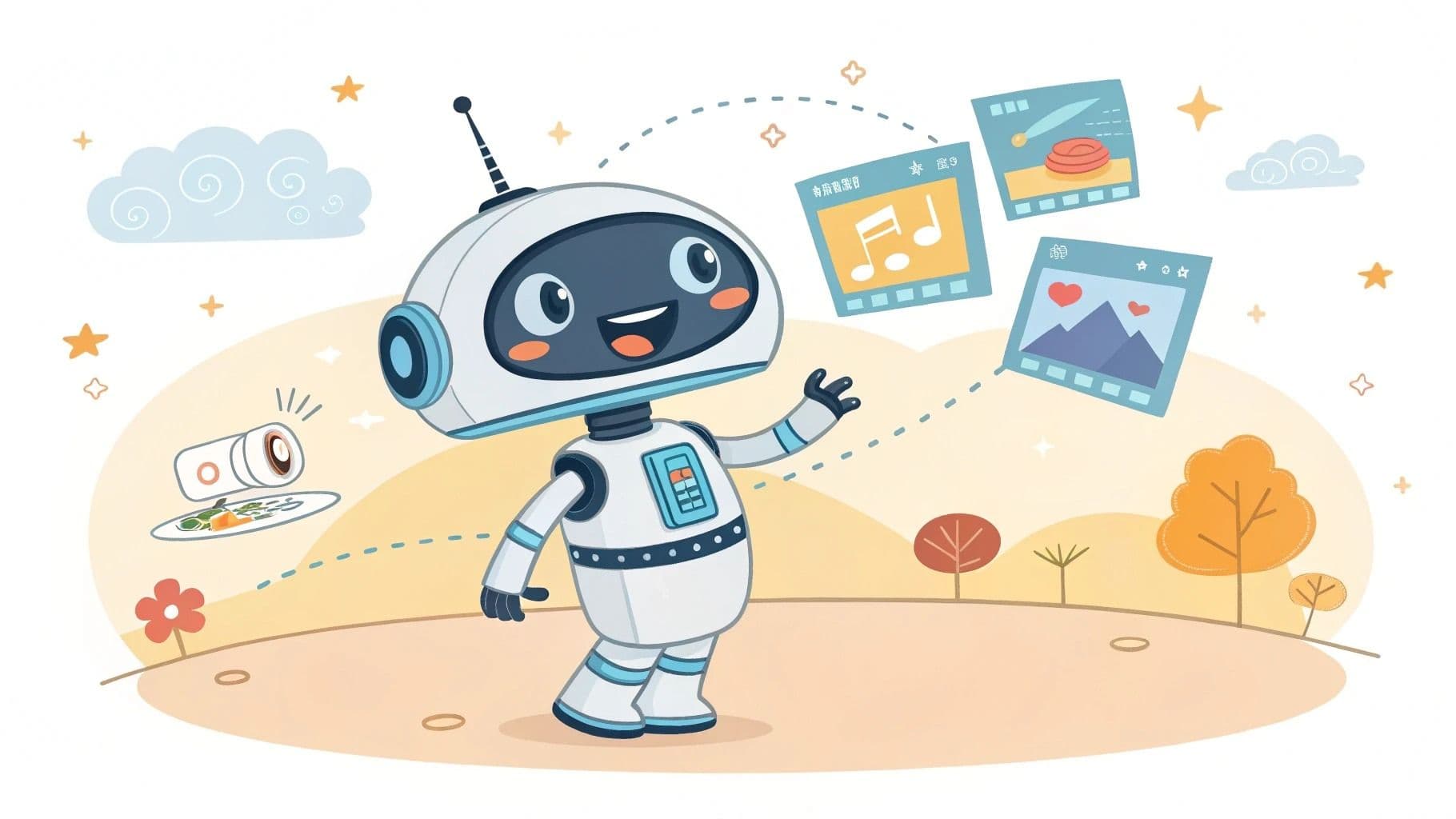Jules: Google's AI Coder Hype vs. Hard Truths
Google's AI coding agent Jules: Hype vs. reality. Slow, limited, struggles with large files. Early devs hit roadblocks.

Google Jules storms the AI coding assistant scene, touted by Google as a revolutionary "asynchronous coding agent." Powered by advanced Gemini models, it promises a leap beyond simple code completion—a domain familiar to users of tools like OpenAI ChatGPT. Media buzz positions Jules as Google's strategic counter to GitHub Copilot's evolving agent features and OpenAI Codex. Yet, early whispers from the beta reveal a classic tech tale: soaring developer excitement clashing with the harsh realities of early-stage software, despite novelties like direct tasking from GitHub issues for project items perhaps tracked in Google Tasks.
This ambitious **AI coding agent** aims to conquer complex, multi-step software engineering feats. Picture this: Jules cloning entire repositories into transient cloud VMs, meticulously planning code alterations, generating clear diffs, and even orchestrating pull requests, potentially using Google Cloud Storage for intermediate steps. While the dream of **automated software engineering** is potent, initial user feedback flags significant turbulence. Underwhelming performance, frustrating context window limits with large codebases, and severely restricted daily usage quotas on its free "starter tier" are recurrent pain points challenging its current utility.
What Jules Promises: Agentic Software Development
Google isn't just launching another helper; Jules is positioned as a cornerstone for "agent-driven software development." The core promise? Jules autonomously navigates entire development cycles. It interprets tasks from GitHub issues, formulates robust plans, executes intricate edits across numerous files, and submits these changes as polished pull requests, primed for human review. For teams coordinating via Jira or visualizing progress in Asana, this signifies a potential revolution: offloading laborious, repetitive work to AI, thereby liberating human ingenuity for complex problem-solving.
The vision extends to Jules possessing an almost intuitive grasp of your codebase. This means it can reason over tangled dependency graphs, understand historical project shifts, and adhere to repository-specific coding guidelines, perhaps even those documented in Coda. Each task is executed within an ephemeral Cloud VM, ensuring isolated and secure environments for compilation and testing—a far more sophisticated approach than mere code snippet generation. Project managers could even track these AI-driven tasks if progress is logged to a central Google Sheets, offering unprecedented oversight.
This "agentic" capability translates into a suite of powerful features. Jules aims to understand not just code, but the entire development context around it. It's about becoming an intelligent partner that can handle complex sequences of actions, reducing the manual burden on developers and enabling them to focus on architectural decisions and creative solutions rather than routine implementation details. The emphasis is on a symbiotic relationship between human developers and AI agents.
- Automatically cloning specified repositories from platforms like GitHub to set up the task environment.
- Generating detailed modification plans, executing code changes, and providing clear, reviewable diffs highlighting alterations.
- Crafting new unit or integration tests, or adapting existing ones to ensure code changes maintain quality and functionality.
- Creating professionally formatted GitHub pull requests, complete with summaries, ready for human oversight and merging.
- Intelligently managing and updating software dependencies, aiming to resolve conflicts or suggest viable alternatives.
- Performing significant code refactoring to enhance structure, improve performance, or adhere to evolving coding standards.
- Generating or updating documentation for new and existing code, potentially referencing style guides from Google Docs.
- Proactively addressing open issues identified via specific labels directly within GitHub issue trackers.
Early Adopter Snags: Where Jules Stumbles Now
Despite the genuine buzz, beta testers of Google Jules are hitting some serious roadblocks that temper their initial optimism. Performance headaches top the chart: users consistently report Jules operating at a glacial pace. Worse, it frequently times out during task execution, often without any useful notification. Some testers even note Jules "hallucinates" progress, claiming to be working when tasks have already failed, making workflow integration with tools like Monday a nightmare.
Context window limitations also cripple Jules when faced with large, intricate files. A striking example involved Jules choking on a 56,000-line file, allegedly due to a 768,000-token context cap—a significant barrier for enterprise-scale projects. The free tier's severe daily usage limits (e.g., a mere five tasks per day, three concurrent processes) are another major pain point. This makes robust testing or meaningful daily integration virtually impossible, especially since failed tasks still anachronistically count against this meager daily quota. Onboarding woes, like users on waitlists not receiving Gmail notifications for access, only add to the friction.
"It's like being given the keys to a race car but only five drops of fuel a day, and sometimes the engine just sputters and dies, still taking your fuel." - Early Beta Tester.
The reliability concerns stemming from these early issues are significant. While the underlying Gemini technology holds promise, the current user experience can be disheartening. Developers, initially excited by the prospect of an advanced AI coding agent, find their efforts thwarted by these practical limitations, leading to a sense of missed potential. Google will need to rapidly iterate and address these core problems to maintain developer interest and trust in Jules as a viable, long-term solution for automated software engineering.
| Problem Area | User-Reported Issue Example | Potential Impact on Developer Workflow |
|---|---|---|
| Performance Bottlenecks | Tasks are unacceptably slow; unexpected timeouts occur with no warning; system falsely reports task status. | Daily task quotas are burned with no output; completion times become highly unpredictable; developer trust erodes quickly. |
| Context Window Constraints | System errors out when attempting to process files exceeding token limits (e.g., a reported 768k token cap). | Inability to effectively handle large enterprise codebases or particularly verbose individual source files. |
| Restrictive Usage Limits | A strict free tier cap of five tasks daily; crucially, failed or timed-out tasks also consume this allowance. | Major impediment to conducting thorough testing suites or achieving any meaningful daily coding assistance. |
| Accessibility & Onboarding Friction | Extended waitlist durations; early access granted without any explicit user notification, requiring manual re-checks. | Heightened user frustration, especially for those eager to experiment; delayed practical adoption and crucial feedback cycles. |
| Reliability Concerns | Some early testers bluntly described it as "pretty terrible" and "sorely disappointing" due to the combination of issues above. | Risk of a negative early reputation forming, potentially overshadowing the powerful underlying technologies. |
Jules vs. The Existing AI Coder Pack: Differences?
Developers are rightly scrutinizing how Google Jules stacks up in an increasingly saturated AI coding tool market. Comparisons are inevitably drawn with GitHub Copilot, particularly its newer agent-like abilities, and OpenAI's foundational Codex models, often accessed via tools like an AI GPT Router for streamlined API calls. Even hyper-agentic newcomers like Devin enter the conversation. A pervasive question from the community is how Jules carves out unique value, especially distinguishing itself from Google's own labyrinth of AI coding projects, including past experiments like Codeweaver or initiatives emerging from Google AI Studio’s "Windsurf."
Google’s primary differentiator for Jules lies in its architecture, purpose-built for orchestrating complex, multi-step, asynchronous coding operations. This contrasts sharply with tools predominantly offering real-time, inline code suggestions within an IDE. Jules’s deep, direct integration with development platforms like GitHub—with potential future support for GitLab or Bitbucket—further underscores this. The use of isolated, disposable cloud VMs for each task also offers a sandboxed haven for compilation and testing, allowing teams to verify builds before critical alerts might be triggered via services like PagerDuty. Yet, with "AI tool overload" a real developer fatigue factor, Jules needs to show clear, game-changing advantages to earn its place. Some envision complex alert systems, for instance, linking PagerDuty events to Twilio for SMS notifications.
The core technological distinction appears to be Jules's ambition to manage entire software development tasks rather than just segments. It's about moving beyond simple code generation to a more holistic understanding of a project's lifecycle. This includes planning changes, interacting with version control systems, and even managing testing and deployment pipelines in the future. This full-cycle approach is what Google hopes will set Jules apart from the competition, aiming for a deeper level of developer assistance and automation currently not widely available.
- Its strategic positioning against GitHub Copilot's evolving agent functionalities and long-term roadmap for AI-driven development.
- How Jules's task-handling capabilities fundamentally exceed what general-purpose LLMs, like OpenAI ChatGPT, can achieve even with specific code-related prompting.
- Clear articulation of its unique selling propositions versus other internal or experimental Google AI coding tools to prevent user confusion and brand dilution.
- Developer perspectives on local (on-desktop) execution models versus Jules's current cloud-dependent architecture, especially concerning data privacy and control.
- Understanding its context processing power compared to specialized code models like those from AI: Mistral or versatile multimodal systems offered by AI: Perplexity.
Attention Developer: Is Google Jules Quietly Mining Your Code for Its Gain? While Google's official narrative often highlights transparency in its AI systems, Jules's cloud-centric architecture inevitably sparks unease among developers regarding code privacy. The concern transcends mere processing of proprietary code; it's the implication that your code—potentially sourced from cloud services like Box and then crunched by Jules—could become training fodder for the underlying Gemini models powering various Google AI initiatives. This very "background learning" on live code fuels the argument for local, on-desktop versions of Jules, offering greater data sovereignty over sensitive intellectual property long before it's committed or deployed via automation like Netlify builds.
User Expectations: Push AI Limits, Boost Efficiency
Developers aren't just looking to automate existing workflows; they're eager to "push" Jules to its absolute limits, uncovering its true capabilities and breaking points with complex, unconventional tasks. A significant hope rests on Jules achieving genuine, deep codebase understanding. This means deciphering intricate inter-file dependencies and adhering to project-specific, often unwritten, coding conventions or style guides—knowledge potentially siloed within internal wikis like a Microsoft SharePoint Online site or a team's Notion workspace. Such nuanced comprehension, possibly aided by AI: Text Classification of documentation, could unlock powerful new efficiencies, even improving how Data Enrichment services process feedback for various business automations orchestrated via Latenode.
At its core, the immense interest in Jules is fueled by a powerful desire: to drastically cut down the drudgery of manual, repetitive coding. Whether it’s executing large-scale refactoring across countless project files, guided by standards from documents in Google Drive, or auto-generating boilerplate for new features outlined in project management tools like Trello or ClickUp, the goal is identical. This includes automatically resolving known issues flagged via integrations like Userback through an "assign-to-jules" mechanism. The ultimate aim is a quantum leap in daily development output, quickly communicating updates to teams via Slack.
"We're not just looking for a slightly faster horse; we want Jules to be a spaceship that takes us to entirely new efficiencies in software creation." - Lead Developer, Anonymous Startup.
The expectation is for Jules to be more than an assistant; developers envision it as a proactive partner. This includes anticipating needs, suggesting improvements, and autonomously handling routine maintenance. The true test will be its ability to scale complex operations and adapt to diverse coding practices, ultimately becoming an indispensable tool for modern software development teams seeking to maximize their creative output and minimize toil, transforming how quickly value is delivered.
- Testing the absolute boundaries of its agentic capabilities: How intricate a multi-step task can Jules reliably manage from inception to pull request?
- Applying Jules to infrastructure-as-code (IaC) modifications, automating changes to cloud configurations defined in assets stored in Amazon S3.
- Delegating tedious but vital code cleanup, optimization passes, and general codebase health maintenance operations across projects.
- Assessing its proficiency in intelligently orchestrating and managing multiple concurrent coding agent tasks without conflicts, perhaps logging progress to Basecamp or a Wrike project.
- Functioning as a highly advanced, intelligent repository "upkeep bot," performing tasks akin to dependabot but with far greater semantic understanding.
- Efficiently scaffolding new applications or features from scratch based on concise natural language specs, or by refactoring existing templates managed in Airtable as a schema-driven source.
Jules' Future: Access, Models, & What's Next?
Intense user curiosity revolves around Jules's specific technical underpinnings and its evolution roadmap. Developers are clamoring for clarity on precisely which Google AI Gemini model version truly powers Jules—is it Gemini 2.0, or the media-hyped Gemini 2.5 Pro? Details on parameter counts and practical context window sizes for real-world coding tasks are also critical, as official Google statements and tech reports sometimes diverge. The ability to securely connect Jules to private GitHub repositories, an absolute must-have for any serious professional adoption, also needs definitive confirmation, especially regarding security when interacting with sensitive data from internal databases like Supabase or enterprise systems like Microsoft SQL Server.
Many users eagerly await news on future paid subscription tiers. These would presumably offer respite from the current, highly restrictive free starter plan limits. Paid plans are also expected to introduce enterprise-grade controls, streamlining how organizations integrate Jules in compliance with existing identity management via platforms like Okta, perhaps syncing user details from Google contacts. The timeline for broader access beyond the current limited beta, especially for developers in key global regions like the EU still stuck on waitlists or facing unavailability, is a constant question. Expanding language support beyond Python and JavaScript is another crucial factor for wider adoption, impacting project tracking in tools like Smartsheet. Better user access tracking, perhaps via Google Analytics events, is also desired for internal monitoring of its rollout.
Furthermore, developers are keen to understand Google's long-term vision for Jules within its broader AI ecosystem. How will it synergize or differentiate from other Google Cloud AI services? Will there be pathways for custom model fine-tuning or specialized versions for specific industries or coding paradigms? These strategic questions are vital for organizations planning long-term investments in AI-driven development tools and looking to align their tech stacks with future innovations from Google.
| Area of Inquiry | Specific User Question Cluster | Anticipated Solution/Feature |
|---|---|---|
| Underlying Core Technology | Demand for clarity: Gemini model version (2.0 vs. 2.5 Pro), real-world context window, parameter size for coding. | Transparent technical specifications to accurately evaluate its true capabilities and limitations. |
| Private Repository Access | Need for robust, secure, and easily configurable connectivity to private/enterprise GitHub repositories. | Essential for corporate trust and adoption, especially with sensitive IP and data, potentially syncing status to a CRM like HubSpot. |
| Monetization & Usage Tiers | Eagerly awaiting details on upcoming paid plans offering increased usage quotas, higher concurrency, and more advanced features. | Clear pathways for professional users to move beyond the severely restrictive free tier for serious development work. |
| Global & Wider Accessibility | Requests for explicit timelines regarding access expansion to more users, and full availability beyond geofenced regions (e.g., EU). | Equitable access for the global developer community, ensuring smooth registration and timely invites to email platforms like Microsoft Outlook or Zoho Mail. |
| Expanded Language Support | A clear roadmap for supporting languages beyond Python/JavaScript, critical for many existing enterprise systems and diverse projects. | Broader applicability across varied technology stacks, boosting its overall value proposition for different developer teams. |
| Handling Large Scale Projects | Strategies or model improvements planned to effectively mitigate current context limit issues for massive codebases or huge single files. | Increased confidence in using Jules for complex, real-world enterprise projects, often involving documents from various cloud storages like Amazon S3. |
| Local Execution Options | Inquiries about potential plans or possibilities for local/desktop versions offering enhanced data privacy, offline usability, or greater control. | Providing developer choice, especially for security-sensitive environments or those with specific compliance requirements. |
Answering Your Top Google Jules Questions Fast
Google Jules has ignited a firestorm of developer excitement, but also a cascade of questions demanding clarity. Users want to know precisely where this new **AI coding agent** fits in the crowded AI-enhanced software development landscape. They seek concrete details on its operational capabilities beyond vague marketing promises, its integration potential with notification platforms like a Discord bot for updates, and realistic timelines for its full, unrestricted availability. If Jules encounters issues, it could potentially push notifications to a message queue such as Google Cloud Pub\\Sub. Here are swift answers to pressing inquiries arriving via services like the Telegram bot API from beta testers and teams exploring integrations with tools such as Microsoft Teams, perhaps even using an AI Agent for automated analysis of Jules's outputs.
The community's hunger for information underscores Jules's perceived potential. Developers are not just curious; they are evaluating if Jules can become a transformative tool. This involves understanding its limitations, future development trajectory, and how it compares to rapidly evolving alternatives. Addressing these questions transparently will be key to fostering a strong user base and realizing Google's vision for agent-driven software engineering, from initial coding to complex business rule implementation.
- How does Jules differ from GitHub Copilot or Devin specifically? Jules is engineered for asynchronous, "agent-driven" software engineering, tackling entire multi-step tasks (planning, coding large chunks, creating PRs). This contrasts with Copilot's historical focus on real-time inline code suggestions or Devin’s broader, sometimes unverified, autonomy claims. Some even ponder if it could handle business logic extending to actions like initiating payments via Stripe.
- What exact Gemini model is running behind Google Jules? Official Google communications often cite Gemini 2.0. However, numerous external media reports and developer discussions point towards the more advanced Gemini 2.5 Pro. Precise details on token limits and parameter counts are still eagerly awaited for comprehensive evaluation, especially for complex coding on platforms like Bubble.
- Can Jules securely access and operate within private GitHub repositories? Seamless and secure operation within private repositories is a top-tier question and an absolute prerequisite for widespread corporate adoption. This is deemed non-negotiable for businesses, especially those with specific development processes perhaps tied to Salesforce that utilize private modules.
- What are Google's plans for paid Jules tiers and lifting current usage restrictions? Users anticipate imminent announcements about premium subscription options. These are expected to remove the severe free-tier limitations and likely introduce enhanced enterprise-grade controls, potentially integrating project billing via tools like Chargebee, which would be valuable if core task management is already on a free Jira plan.
- When is broader global access (e.g., specific for European Union regions) expected for Google Jules, ending the beta waitlist limits? A vast number of international developers and organizations remain on waitlists or in unsupported regions. Precise timetables are urgently needed before any serious migration planning (e.g., moving documentation from systems like Xero can begin), potentially integrating with helpdesk systems via Freshdesk.
- Will Jules expand its programming language support beyond just Python and JavaScript anytime soon? Broader language capability—supporting Go, Java, or C# for instance—is a critical need for most larger organizations. For many, specific language support is a non-negotiable adoption requirement, alongside robust security to protect user data, perhaps gathered via forms on Webflow.



